Religious Festivals in India | General Test Preparation for CUET UG - CUET Commerce PDF Download
Religious Festivals - Historical background
- The Bamboo Festival of Chedi was an important Ancient Indian festival that the Ancient Indians celebrated.
- People install a bamboo pole and pray to a god to enlarge their city during this festival.
- The Holi Event is another old Indian festival. It is a celebration of good triumphing over evil. It's a week-long event.
- Color clashes take place during the celebration. People splatter each other with paint and coloured water.
- The Aryan Vedic tradition of celebrating festivals can be traced back to the Vedic era.
- Many sources of knowledge on festivals when celebrations were held to honour gods, plants, rivers, and mountains may be found in the Vedic scriptures and literature. Prayers, fasting, and social and cultural significance are all part of India's festivals.
Religious Festivals - An Overview
- Hindus, Muslims, Christians, Sikhs, Buddhists, and other religious groups, all celebrate their festivals on the same day, either individually or as a mixed group if their festivals are the same.
- These are festivals observed by distinct communities that adhere to a specific belief system or religion.
- Most religious denominations have important festivals in their culture.
- For example, the Hindu community around the world celebrates the Diwali festival.
Hindu Festivals
Diwali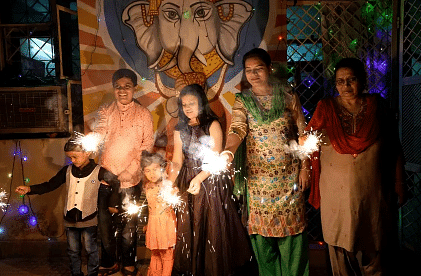
- It is also known as the 'Festival of Lights,' and it is observed by all Hindu groups in India and worldwide.
- It occurs on the auspicious day of the 'new moon,' or Amavasya, in the Karthik month, which is normally in October or November.
- Several Hindu priests refer to it as 'Krishna Chaturdashi.'
- The day before Diwali is known as Naraka Chaturdasi, and it is one of the numerous auspicious days that precede the arrival of the festival.
- This represents Lord Krishna's victory over the demon Naraka.
- The following day is Diwali, also known as Lakshmi Puja.
- Diwali is also known for the Chopad Puja, which commemorates Lord Krishna's sermon on Karma Yoga to Arjuna on the battlefield of Kurukshetra.
Sharad Purnima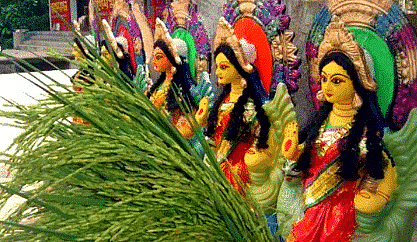
- This festival, which occurs 15 days before Diwali, celebrates the harvest season.
- It occurs on the Navanna Purnima, or full moon night.
- The festival's unique feature is that individuals sip saffron-colored milk during the moonlit night, a custom known as Kojagiri.
- This rite is associated with the Goddess Durga in some parts of India.
- In a torch-lit procession known as Chhabina, the Goddess's idol is carried across the temple grounds.
Holi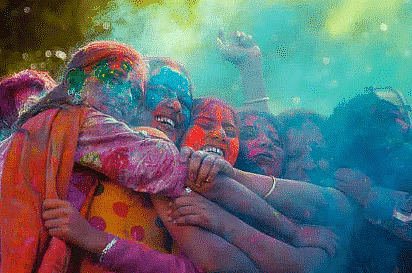
- It's known as the 'Festival of Colours,' and it's celebrated with enthusiasm and colour across the country.
- It is a festival that characterises Indian culture and is observed by people of many religions and communities.
- Holi is celebrated in many ways around the country; for example, in Vrindavan and Mathura, Lathmar Holi is observed, in which the ladies of the family come out and beat their husbands with sticks.
- It's done in a lighthearted manner with plenty of merriment.
- In many regions of rural Maharashtra, it is known as Rangapanchami.
Makar Sankranti
- It is a festival honouring the Sun God, who is also known as the King of the Planets.
- Makar Sankranti commemorates the Sun's arrival in the northern hemisphere.
- The celebration is also tied to the agricultural cycle that most rural farming communities follow.
Janmashthami
- It is Lord Krishna's birth anniversary, which is commemorated by Hindus all throughout the country.
- It occurs during the month of Shravan (July/August), and the date is determined by the lunar calendar and the moon's position.
Dussehra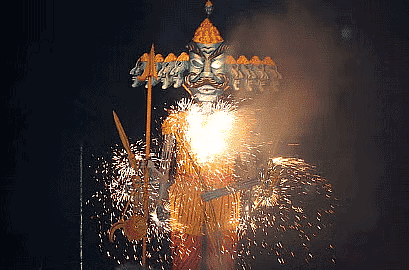
- Dussehra, also known as 'Vijaydashami,' is a national holiday in India commemorating Lord Rama's victory over Ravana.
- Prior to the festival's conclusion, Hindus in north India observe a nine-day fast known as 'Navratri.'
Ram Navami
- Lord Rama's birth anniversary is commemorated with this celebration.
- The event takes place in the months of March/April, also known as Chaitra.
- The event is observed all over the country, however Ayodhya and Puducherry are two particular regions where it is observed.
Durga Puja
- The holiday of Dussehra is identical to the Bengali, Assamese, and other communities' Durga Puja celebrations.
- This festival commemorates Goddess Durga's victory over the demonic 'Mahisasura.'
Ganesh Chaturthi
- The celebration is held to commemorate Lord Ganesha's birth anniversary.
- It occurs on the fourth day of Bhadra (August/September) month.
Mahashivratri
- This event is held every year in honour of Lord Shiva.
- Maha Shivratri is a day of celebration and prayer to the Almighty for health and happiness.
- It occurs on the fourteenth day of the month of Magha, which falls in February or March according to the Gregorian calendar.
Chhath
- Chhath is an ancient Hindu festival that has been held since the Vedic era.
- It is dedicated to Surya, the Sun God, who is the source of all life on Earth.
- It is celebrated six days after Diwali on the sixth day of the lunar fortnight of the Kartik month.
Muslim Festivals
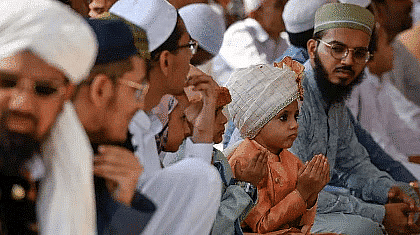
Eid-ul-Fitr
- This is one of the Muslim festival celebrated around the world.
- The event takes place on the last day of Ramadan (Ramzan), which is the Islamic calendar's ninth month.
- People fast for the full month of Ramadan, beginning at daybreak and ending at dusk.
Milad-Un-Nabi
- This festival, also known as the Barah-wafat, commemorates the Prophet Muhammad's birth anniversary.
- The Prophet was born on the twelfth day of Rabi-al-Awwal, the third month of the Muslim calendar, according to the Quran.
Muharram
- Muharram is a mournful occasion since it commemorates the loss of Hussain, Ali's son.
- The event takes place in Muharram, the first month of the Islamic calendar.
Shab-e-Barat
- The 'Night of Emancipation,' as it is sometimes known, occurs on the night between the 14th and 15th day of the month of Shaban.
- Every person's fate is determined on this night, according to Muslim tradition.
Shab-e-Miraj
- Shab-e-Miraj literally translates to "night of Ascension." It was thought that the Holy Prophet would continue his trip and come closer to the Almighty.
- This occurred on the 27th day of Rajab, two years before Hijra. The journey did not take place in a physical body.
Christian Festivals
Christmas
- The birth anniversary of Jesus Christ is commemorated on this day all around the world.
- Every year on the 25th of December, it is observed.
- The celebrations begin with the Midnight Mass, which is celebrated in all churches on the night of December 24th - 25th, and commemorates Christ's birth at midnight.
Easter & Good Friday
- The resurrection of Jesus Christ is commemorated on this day.
- According to the Bible, Jesus was resurrected three days after he was crucified, hence Easter is supposed to represent the triumph of life over death.
Sikh Festivals
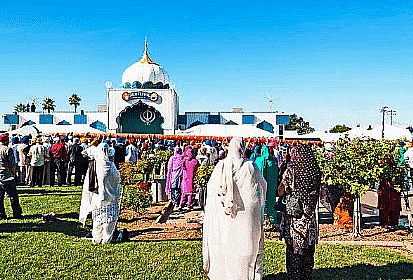 Gurpurab
Gurpurab
- It is commemorated by the Sikh community all over the world.
- The birth anniversaries of all ten Sikh gurus are commemorated in Gurpurabs, although Guru Nanak and Guru Gobind Singh are the most important.
Maghi
- It is the Sikhs' seasonal meeting, which takes place once a year.
- In Muktsar, it is commemorated in honour of forty Sikh martyrs (Chalis Mukte) who resisted the Mughals.
Hola Mohalla
- It is a major holiday for Sikhs, as well as the start of the Sikh New Year.
- It is usually held in Anandpur Sahib in the month of March on the second day of the lunar month Chett.
Vaisakhi
- Every year on the 13th or 14th of April, a religious event is held.
- This event commemorates the Sikh new year as well as the birthday of the Khalsa Panth. For the Sikhs, this is the spring harvest festival.
- Gurudwaras are ornamented and kirtans are held there.
Lohri
- On the 13th of January, in the month of Magh, a day before Makar Sankranti, this occasion is commemorated.
- Lohri is a Hindu festival that honours fertility and the spark of life.
Jain Festivals
Mahavir Jayanti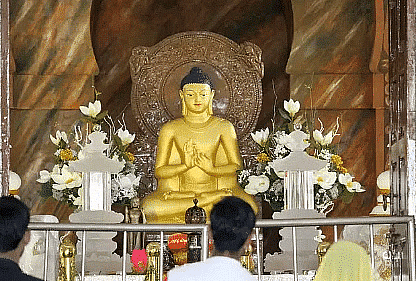
- The festival is observed by the Jain community. It is held to commemorate Lord Mahavira's birth anniversary as the 24th Tirthankara and one of Jainism's founders.
- It occurs on the thirteenth day of Chaitra, the month of the rising moon.
Paryushana
- Paryushana is the name of the Jains' annual festival.
- The Svetambara sect celebrates it for eight days in the month of Bhadrapada (August/September).
- The celebration is held for ten days by the Digambara sect.
Mahamastakabhisheka
- It is a Jain festival held once every twelve years in the Karnataka town of Shravanabelagola.
- The holy bathing ceremony of Siddha Bahubali, son of Rishabhdev, is held at this festival.
Gyana Panchami
- "Gyana Panchami" is the name given to the fifth day of Kartika.
- It's known as "Knowledge Day." The Holy Scriptures are presented and revered on this day.
Varshi Tapa or Akshay Tritiya Tapa
- This festival commemorates Rishabhdev, the first Jain Tirthankara, who fasted for a total of 13 months and 13 days.
- His fasting came to an end on the 3rd day of the light fortnight of the Jain calendar's Vaishakh month.
Buddhist Festivals
Buddha Purnima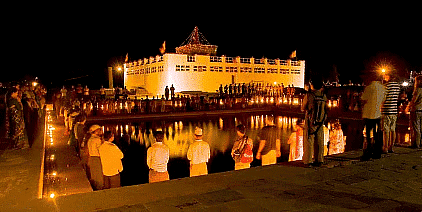
- The Buddha Purnima, also known as the Buddha Jayanti, commemorates the birth of Lord Buddha.
- It occurs throughout the months of April and May and is widely observed in portions of North-east India.
- In Sikkim, it is known as Saga Dawa (Dasa), and in the Theravada tradition, it is known as Vishakha Puja.
Songkran
- This Buddhist festival is celebrated in the same way that spring cleaning occurs.
- During the middle of April, it is commemorated for many days.
- People wash their clothes, clean their homes, and enjoy sprinkling fragrant water on the monks.
Ploughing Festival
- This event commemorates Buddha's first enlightenment, which occurred while he was seven years old and was watching ploughing with his father.
Ullambana
- From the first to the fifteenth days of the eighth lunar month, this festival is commemorated.
- The gates of hell are said to open on the first day, allowing ghosts to enter the world for fifteen days.
Losar Festival
- It is one of the most important holidays in Arunachal Pradesh, as it commemorates the Tibetan New Year, which resonates with the region's significant Tibetan and Buddhist populations.
Sindhi Festivals
Chaliho Sahib
- It is the Sindhi Community's event. In the months of July and August, the Sindhis conduct a forty-day fast.
- They fast for forty days in order to pray to Lord Jhulelal, and then they commemorate the occasion as Thanksgiving Day.
Cheti Chand
- The occasion is Sindhi New Year, which is observed all around the world. On the first day of Chaitra, it is commemorated.
- Cheti Chand is a Sindhi festival commemorating the birth of Jhulelal, the Sindhis' patron saint.
Parsi Festivals (Zoroastrian)
Jamshedi Navroz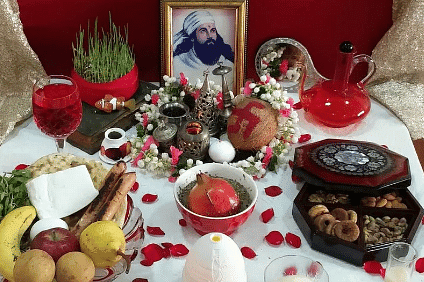
- The Parsi community celebrates the holiday of Navroz as the New Year's celebration.
- According to the Shahanshahi calendar, it falls on the Roj Hormuzd, or the first day of the first month (Mah Farvardin).
Zarthost No Deeso
- On the eleventh day of the tenth month (Khorshedroz, Daemah) of June.
- Prophet Zoroaster's death anniversary.
Pateti
- On the Parsi Calendar's last Gatha day.
- To express regret for the crimes perpetrated throughout the year.
Conclusion
Fairs and festivals in India are a wonderful, fantastic, and joyful set of activities that symbolise the ceremonies of birth, death, and renewal. India's festivals and festivities commemorate the births of gods, goddesses, heroes, heroines, gurus, prophets, and saints, as well as their outstanding exploits. In today's society, Indian festivals are celebrated with greater enthusiasm all over the world. Many enjoyable activities are available, including the fundamentals of praying to Gods, religious celebrations, and customs.
|
164 videos|800 docs|1156 tests
|
FAQs on Religious Festivals in India - General Test Preparation for CUET UG - CUET Commerce
| 1. What is the historical background of religious festivals in India? |  |
| 2. What is the significance of Hindu festivals in India? |  |
| 3. How do Muslim festivals in India differ from Hindu festivals? |  |
| 4. What are some of the major Christian festivals celebrated in India? |  |
| 5. How do Buddhist festivals in India differ from Jain festivals? |  |
















